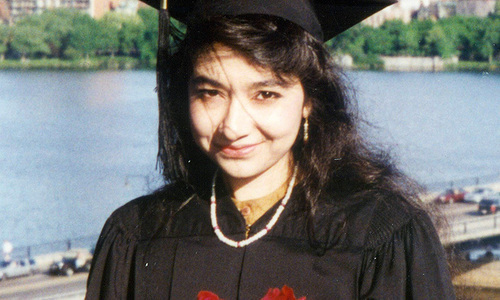IT is alleged, notoriously, that Dr Shakil Afridi helped the US assassinate Osama bin Laden by running a dummy Hepatitis B vaccination campaign, during which he secured blood samples from Bin Laden’s children proving where the Al Qaeda leader was hiding. As a result, the US wants Pakistan to release Dr Afridi to liberty in America where he attained heroic status.
Chaudhry describes in Diplomatic Footprints how president Barack Obama took this up in 2015 with then prime minister Nawaz Sharif, while the latter raised the issue of Dr Aafia Siddiqui. Each side argued the other was asking too much.
I recently met the Washington congressional staff of Rep Brad Sherman (D-California), who has again proposed a swap. Indeed, when it became clear that Dr Afridi was facing another trial in KP, where he could plausibly face the death penalty, US concern escalated.
Now is the time to revisit the issue, but my concern is that the Pakistan authorities might be about to repeat the ‘Raymond Davis mistake’, giving the US what it wants without insisting on Dr Siddiqui’s return. Then, the US took the position that the cases were very different: indeed they were, but not in the way America suggested. Davis murdered three Pakistani citizens on the streets of Lahore; Dr Siddiqui killed nobody, but was, instead, the one who took at least two bullets in the stomach from the pistol of an American soldier in Ghazni, Afghanistan. Yet the Pakistan government of the time caved in. I suspect most Pakistani citizens recognised that this was weak.
I have been working to strengthen Pakistan’s hand in the negotiations. I was recently in Afghanistan where I tracked down a number of witnesses who confirmed her version of what happened in Ghazni: she did not try to shoot anyone, but was herself shot by a panic-stricken American soldier.
Meanwhile, the US tortured Aafia Siddiqui in Bagram Air Force Base and inflicted immeasurable abuse upon her utterly innocent children. One — Suleiman, aged six months — was apparently dropped and killed during her abduction. The other two were taken to Afghanistan where one was forcibly adopted into an American Christian family, and the other, aged just six, was put in an Afghan prison.
Now is the time to revisit the Aafia Siddiqui case.
I have no interest in getting people in trouble, but this is how the case will progress: if the US does not comply with the reasonable request to exchange Dr Aafia Siddiqui for Dr Afridi, I will be forced to continue my investigation to expose what the US did to her children. If she is released, then I no longer have to do that (which will make me very happy, as I can get on with other things).
Meanwhile, nobody should blame her family for this. I am her lawyer and I make the decisions, not her family. It is my duty to do what is in the best interests of my client.
As I write this, I am in Washington, D.C. I spent the last few days with Dr Aafia Siddiqui and her sister Dr Fowzia Siddiqui in Fort Worth, Texas. While there, I finally felt the time had come when I had to release the horrific fact that Aafia Siddiqui was not only raped in Bagram, but also in the prison where she is now held, FMC Carswell. I did this because of inaction on the part of the US government when it comes to the interim emergency, which is to get her into a different institution. Notably, I did not release the names of the perpetrators.
When I told her I had to leave, she understandably started screaming for help, crying that she would not go back into the hellhole of her prison cell, surrounded by rapists. In 39 years of this work, I have not been moved more by the sheer horror of having to leave a client in the hands of the US prison system. So let us do a prisoner exchange.
But, on Dec 7, caretaker Prime Minister Anwaar-ul-Haq Kakar spoke vaguely of how the government will raise her plight with the Americans. With respect, Pakistan is a strategically important country of 231 million people. Dr Aafia Siddiqui is wholly innocent of the crimes alleged against her — but even if she was guilty of a thousand crimes, she would have been punished enough.
Getting Dr Afridi back would be a coup for President Joe Biden as he was in the White House when the news came in of Bin Laden’s death. There is circumstantial evidence supporting the notion that Dr Afridi’s release is in the works.
In mid-November, the Peshawar High Court ordered that Dr Afridi’s family should be removed from the Exit Control List, meaning there is nothing to stop them accompanying him to the US if he goes. But on his trip to Washington, is army chief Asim Munir thinking of a deal for arms rather than Aafia Siddiqui?
Let us not see another surrender by Pakistan. Surely this country has the power to get one poor, lonely, traumatised woman back to Karachi?
The writer is an Anglo-American human rights lawyer who has taken on the case of Aafia Siddiqui pro bono.
Published in Dawn, December 15th, 2023












































